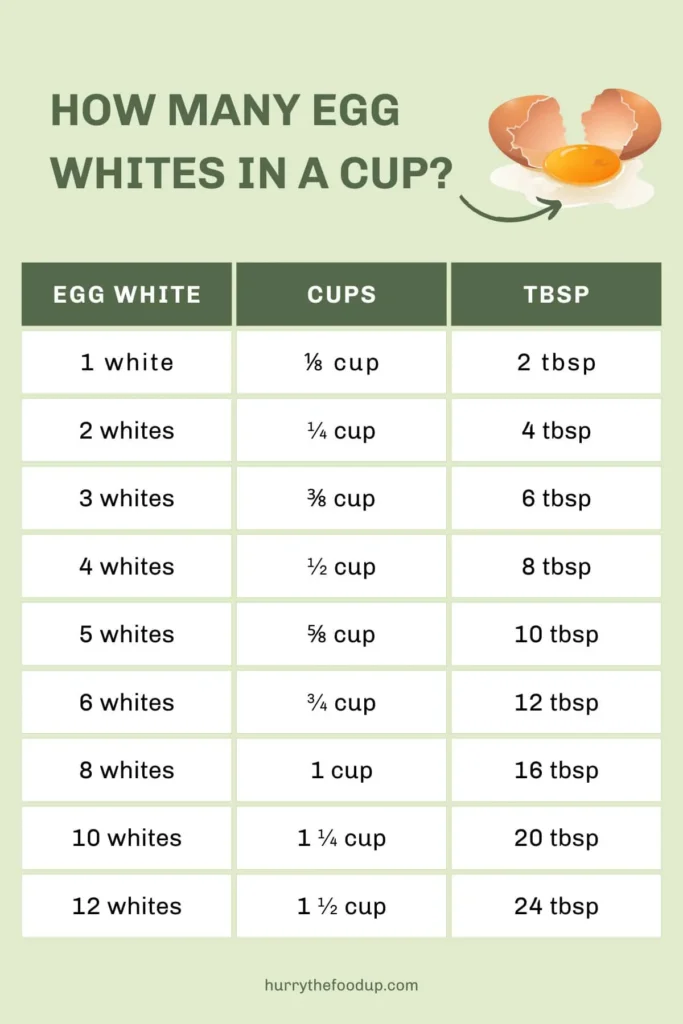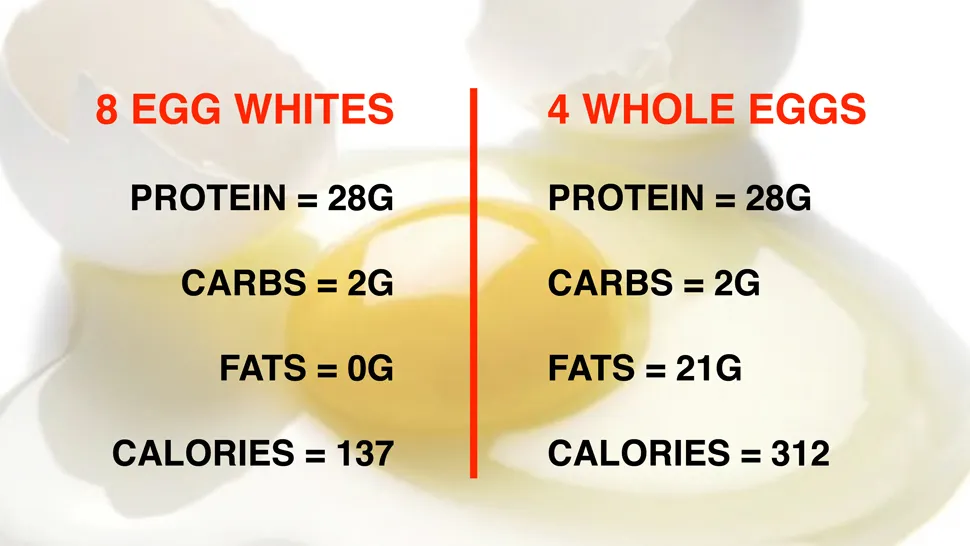Now Reading: Imagine holding a breakfast plate with four eggs. Have you ever wondered how much protein you’re getting from them?
-
01
Imagine holding a breakfast plate with four eggs. Have you ever wondered how much protein you’re getting from them?
Imagine holding a breakfast plate with four eggs. Have you ever wondered how much protein you’re getting from them?

This article explores the protein content in four eggs—around 24 grams—and discusses the health benefits of eggs, including their vitamins and minerals. It explains the role of egg whites and yolks, how cooking affects protein, and whether eating four eggs a day is safe for most individuals.
If you’re like most people, you’re curious about the nutritional value of your meals, especially when it comes to protein. Protein is crucial for your muscles, hair, skin, and overall health. But when it comes to eggs, how much are you really getting from just four?
This article will reveal the exact protein content in those four eggs you might be considering for breakfast. Beyond that, we’ll explore whether eggs are good for you and dive into what makes up an egg, breaking down the nutrients found in both the white and yolk.
You’ll also discover if the way you cook your eggs changes their protein content and whether eating four eggs a day is safe for you. By the end of this read, you’ll have the insights you need to make informed decisions about including eggs in your diet. Stick around, and let’s crack open the truth about eggs and protein.

So, How Much Protein Do 4 Eggs have?
Four eggs contain a substantial amount of protein, making them an excellent choice for individuals seeking to increase their protein intake.
Each egg has about 6 grams of protein, so four eggs provide around 24 grams. This amount can help support muscle growth and repair, which is essential for active individuals.
Eggs are also rich in essential amino acids, which are the building blocks of protein. Eating eggs can be a simple way to meet your daily protein needs. For those on a budget, eggs offer an affordable protein source compared to other options.
They’re versatile in cooking, too, allowing you to prepare them in various ways without getting bored. Whether boiled, scrambled, or in an omelet, eggs can fit into many meals. Remember, while eggs are high in protein, they’re also nutritious, offering vitamins and minerals that support overall health.
Are Eggs Good For Your Health?
Eggs are a popular choice for many. They are packed with nutrients and are a good source of protein. Each egg contains about 6 grams of protein, making them a great addition to meals. With four eggs, you get around 24 grams of protein.
This helps in building and repairing muscles. Eggs also have vitamins and minerals. They contain vitamin D, which is beneficial for bones, and vitamin B12, which is crucial for brain health. Some people worry about cholesterol in eggs. Eggs indeed have cholesterol, but for most people, they are safe to eat in moderation.
They can be part of a balanced diet. Adding eggs to your diet can be both nutritious and delicious. Enjoy them boiled, scrambled, or poached. Eggs are versatile and can fit into many dishes.
What Else Is Inside An Egg? Egg White And Yolk Nutritional Data
Eggs are a nutritious food choice, packed with essential nutrients. Each egg contains two main parts: the egg white and the yolk. Egg whites are known for being rich in protein while low in calories. They also contain essential minerals such as potassium and sodium.
The yolk, on the other hand, is where most of the vitamins and fats reside. It offers vitamins like B6, B12, and D, along with healthy fats and cholesterol. Both parts of the egg contribute to its overall nutritional value, making it a balanced addition to a diet.
Eggs also have choline, which is essential for brain health. This combination makes eggs versatile and beneficial for various dietary needs. Whether boiled, scrambled, or poached, eggs provide a mix of nutrients that support a healthy lifestyle.
Does The Cooking Method Affect How Much Protein Is There In 4 Eggs?
Cooking methods can affect the protein content in eggs. Boiling, poaching, or frying eggs without oil maintains the protein content relatively unchanged. These methods preserve the protein as the eggs are cooked directly.
Scrambling eggs may cause a slight decrease in protein due to the addition of ingredients like milk or butter, which dilute the egg’s natural protein content.
Frying eggs in oil or butter can also slightly alter the protein, but not significantly. The main protein change comes from overcooking. High heat can cause proteins to break down, leading to a minor loss.
Despite these changes, four eggs generally contain around 24 grams of protein, regardless of the cooking method.
Most methods maintain the egg’s nutritional value, making them a healthy choice. So, while the cooking method may slightly alter protein levels, it doesn’t drastically change the benefits that eggs offer.
Is It Safe For You To Eat 4 Eggs Per Day?
Eating four eggs a day is generally safe for most people. Eggs are a great source of protein, vitamins, and minerals. Many people enjoy them for breakfast, lunch, or dinner. They provide energy and help you feel full longer. But it’s essential to consider your overall diet and health.
Too many eggs can raise cholesterol levels for some individuals. It’s wise to balance egg consumption with other protein sources, such as fish, beans, or nuts. If you have dietary restrictions or health concerns, consulting a doctor or a nutritionist can be helpful.
Eggs also contain beneficial nutrients like omega-3 fatty acids and antioxidants. These can support heart health and eye health. Remember, moderation is key to maintaining good health in any diet.

Frequently Asked Questions
Four eggs contain about 28 grams of protein. Eggs are a good protein source.
Yes, eggs are nutritious. They have protein, vitamins, and minerals. They are a good part of a balanced diet.
Egg whites have protein. Yolks contain fats, vitamins, and minerals. Both parts are nutritious.
Cooking doesn’t significantly alter the protein amount. It may affect digestion and nutrient absorption.
For most people, eating 4 eggs is safe. Consider your cholesterol intake if you have health concerns.
Conclusion
Understanding the protein content in four eggs helps plan meals more effectively. Eggs are a good source of protein, supporting muscle growth and overall health. They also provide other essential nutrients, including vitamins and minerals. Cooking methods don’t significantly alter the protein amount. Eating 4 eggs daily is generally safe for most people.
Always consider personal health needs. Balancing eggs with other foods creates a nutritious diet. Continue exploring ways to incorporate eggs into meals. Your health journey benefits from informed food choices.

Grayson Wells is a U.S. tech journalist specializing in gadgets and gaming. He reviews the latest gear, explores industry trends, and delivers clear, practical insights for everyday readers and enthusiasts.
Stay Informed With the Latest & Most Important News
Previous Post
Next Post
-
 01Happy Gilmore 2: Your Complete Guide to the Golf Comedy Sequel
01Happy Gilmore 2: Your Complete Guide to the Golf Comedy Sequel -
 02Joe Root’s Test Runs: England’s Batting Genius in Focus
02Joe Root’s Test Runs: England’s Batting Genius in Focus -
 03The Bad Guys 2 (2025): Everything We Know So Far
03The Bad Guys 2 (2025): Everything We Know So Far -
 04Demon Slayer: Kimetsu no Yaiba The Movie: Infinity Castle Tickets – Your Guide to the Epic Anime Event
04Demon Slayer: Kimetsu no Yaiba The Movie: Infinity Castle Tickets – Your Guide to the Epic Anime Event -
 05RTX 50 Series Unleashed: Next-Gen Gaming Power Awaits!
05RTX 50 Series Unleashed: Next-Gen Gaming Power Awaits! -
 06The Naked Gun 2025: What to Know About the Comeback Comedy Starring Liam Neeson
06The Naked Gun 2025: What to Know About the Comeback Comedy Starring Liam Neeson -
 07Sensory Clothing for Kids: What Every Parent Needs to Know
07Sensory Clothing for Kids: What Every Parent Needs to Know















